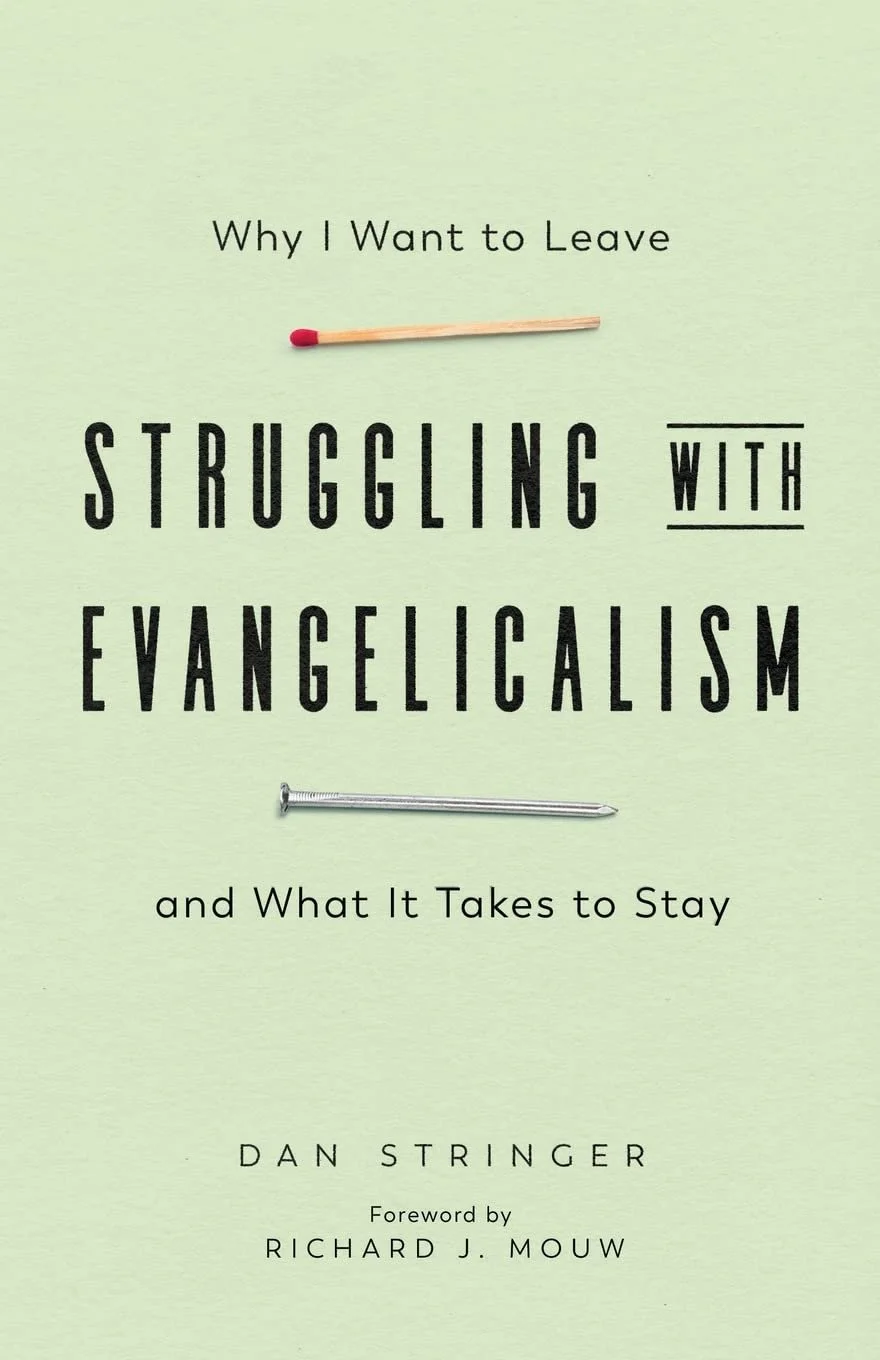Struggling with Evangelicalism
“Combining restlessness with evangelicalism has been the story of my adult life.”
That relatable line comes from Richard Mouw in his 2019 book on the question of whether—and how—to hold onto the “evangelical” label, given what we might call The Circumstances. “I don’t see how I could have survived in the evangelical movement without the freedom made possible by the restlessness,” Mouw continues. “And I see a marvelous kind of restlessness in evangelicalism’s younger generation.”
That spirit of evangelical restlessness is alive and well in Struggling with Evangelicalism: Why I Want to Leave and What It Takes to Stay (IVP, 2021) by Dan Stringer. Indeed, it is Mouw, Stringer’s mentor, who writes the foreword. And there’s another admirable Mouwist quality to Stringer’s writing: a refusal to take cheap shots, even when critiquing, lamenting, and wrestling, which is so much of what this book does.
Evangelicalism is famously decentralized and amorphous. There’s no Protestant Pope in a polo shirt issuing televised decrees from a balcony in Wheaton—or from somewhere in Nairobi or Seoul or Tegucigalpa. Evangelical statements of the theological variety are made always and everywhere by those who represent, at best, a minority stake in evangelicalism. And that’s before we even get to political statements, where definitions of evangelicalism all too often begin and end.
It may sound strange to those raised outside of the movement, but a lot of people—including Stringer—grew up in evangelicalism without realizing it, without ever really owning the label, much less considering disowning it. Eventually Stringer recognized that in a theological, missional, and ecclesiological sense, evangelicalism was indeed his home. Or, as he puts it in this book, he could no longer avoid the fact that evangelicalism was his mother.
It’s complicated, though. As we’ve said, evangelicalism is understood in different quarters in competing, often contradictory ways. White American evangelicalism can look quite different from African, Asian, and Latin American evangelicalism. And not all evangelicals in the United States are white, nor do evangelicals anywhere agree on everything. Different people use the label differently. So if we can’t agree on what evangelicalism is, what does it look like to contemplate leaving? Can we ever be sure that we’ve left? (Yeah, I’m asking for a friend.)
Stringer writes as a TCK, someone accustomed to living between cultures. And it’s that perpetual insider-outsider viewpoint, in my estimation, that makes this book so helpful and so interesting. It’s not giving too much away to say that Stringer chooses to stay (it’s right there in the subtitle), even if he first rehearses the many, many reasons it would be easy to leave—and why so many people are doing just that.
Stringer writes with hope. And not the naive kind. He wants us to pay attention to where we came from and to be clear-eyed about where we’re headed. “It can be easy to forget how evangelicalism got here and what it has given us,” he writes. “If there was no evangelicalism, perhaps we would not have been invited to follow Jesus or have a reason to engage the question of how to cultivate a healthier, less toxic evangelicalism.”
One gets the impression that this story is far from over. Like Stringer, evangelicals everywhere will continue to wrestle with the meaning of the word and to assess their place within that sprawling, evolving movement. What other choice do we have?
